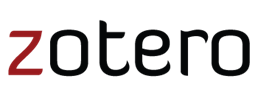
Citing resources is an important responsibility for students, professors, researchers, authors, and anyone who uses a work that is not their own.
Any creation of the mind, such as literary and artistic works, inventions, symbols, names, and images are considered intellectual property, and are protected by copyright. Any type of intellectual property used in your work must be properly cited (Types of Intellectual Property).
However, citations are not simply a way to avoid copyright infringement and plagiarism. Citations are important because they:
©2019, WIPO Types of Intellectual Property. (n.d.). Retrieved July 25, 2019, from https://www.wipo.int/about-ip/en/
From the Academic Integrity Section of the Undergraduate Catalog:
At Kettering University, we believe fairness, openness, and intellectual honesty to be the keystones of our educational mission. We foster these qualities in all our endeavors and use all possible means to discourage dishonesty, in any form. All members of the Kettering community should report academic dishonesty to the appropriate faculty person, as well as to the Vice President of Student Life and Dean Students. Academic dishonesty prohibited at Kettering University includes, but is not limited to, the following forms:
Cheating: Intentionally using or attempting to use unauthorized materials, information, or study aids in any academic exercise.
Fabrication: Intentional and/or unauthorized falsification or invention of any information or citation in an academic exercise.
Facilitating Academic Dishonesty: Intentionally or knowingly helping or attempting to help another engage in academic dishonesty in any form.
Plagiarism: Intentionally or knowingly representing the words, ideas, or images of another as one’s own in any academic exercise.
Students may avoid any perception of academic dishonesty by following these principles:
Adherence to these principles is necessary in order to insure that:
Students found to have carried out any form of academic dishonesty are subject to the faculty member’s scrutiny and sanctions, as well as Judicial Affairs’ policies and procedures.
Please see the resources below for help citing your sources.

Citationsy is a no-nonsense reference collection and bibliography creation tool for people who value simplicity, privacy, and speed.

Mendeley is a free reference manager and academic social network that can help you organize your research, collaborate with others online, and discover the latest research in your field

ReadCube is a low-cost desktop and browser-based program for managing, annotating, and accessing academic research articles

RefWorks is web-based bibliographic software that enables you to organize your research, include citations while you write your paper, build a bibliography in a variety of formats, import references from many data sources, and create bibliographies in different document formats (Word, RTF, HTML, etc.).

Zotero collects all your research in a single, searchable interface. You can add PDFs, images, audio and video files, snapshots of web pages. Zotero automatically indexes the full-text content of your library, enabling you to find exactly what you're looking for.